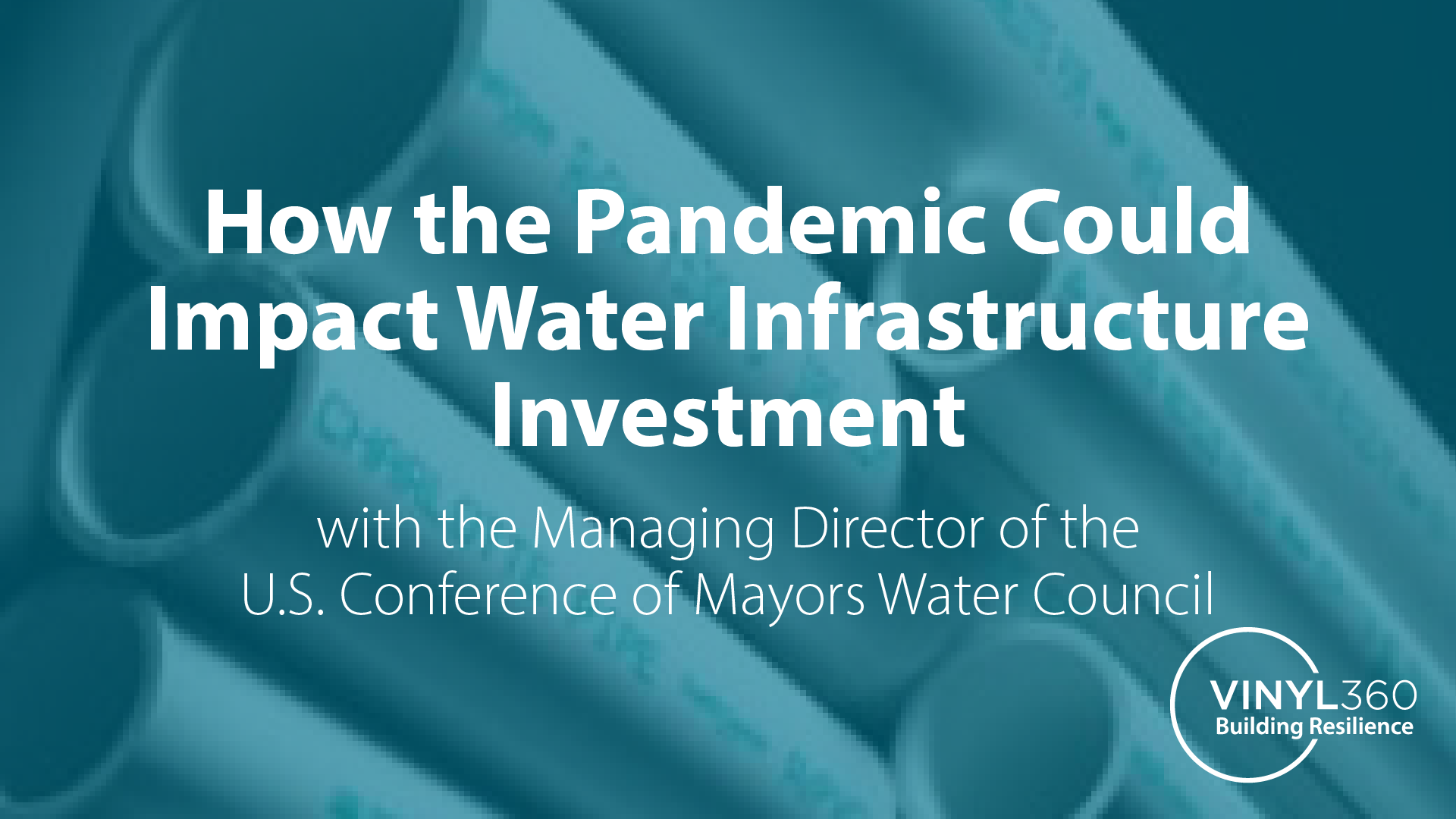This website uses cookies so that we can provide you with the best user experience possible. Cookie information is stored in your browser and performs functions such as recognising you when you return to our website and helping our team to understand which sections of the website you find most interesting and useful.
News
Learn About COVID-19’s Effects on Water Infrastructure at Vinyl360
We’re excited to announce an addition to our Vinyl360 speaker series – Richard Anderson, Managing Director of the U.S. Conference of Mayors Water Council, will discuss municipal water utility infrastructure investment and recessionary impacts on Wednesday at Vinyl360.
Since the COVID-19 recession began in February 2020, it has brought great uncertainty about the severity and duration of the pandemic. Local governments are already documenting pandemic response costs, lost sales and income taxes and worrying about potential lost revenues from public services – local water and sewer utilities included.
So to better predict the impacts of the current recession on water utilities, the Mayors Water Council has researched the investment expenditures and revenue collections before and after the Great Recession from 2007 to 2009. This confirmed the longstanding practice of utilities adjusting their budgets in response to national economic recessions to ensure continuity of service for public health and safety, which has often meant imposing spending limits or reductions on workforce and capital construction.
The Mayor’s Water Council estimates that between 1993 and 2019, there has been $105 billion of lost construction spending, at a time when more than $700 billion is needed to improve the nation’s water infrastructure.
During his presentation, Anderson will answer the question, will the recession pattern repeat itself in the current pandemic? While no one can predict the future for certain, past trends will point us towards likely answers and prepare us for how to move forward in 2021 and beyond. And with water infrastructure being a key issue of the Vinyl Institute, we are eager to learn more about what we may expect.
To register for Vinyl360, click here.
About Richard Anderson
Prior to his position at the U.S. Conference of Mayors, Anderson was the Director of Government Affairs at Wheelabrator Technologies, Inc., a New Hampshire-based energy, solid waste and water-services company, where he managed issues involving solid waste management regulation and legislation at the state and federal levels. And before this, he was an Assistant Professor at Boston’s University’s graduate program in Urban Affairs and Planning.
He holds a bachelor’s degree in Urban Studies from Livingston College, and a master’s degree and doctorate in City and Regional Planning from Rutgers University.


